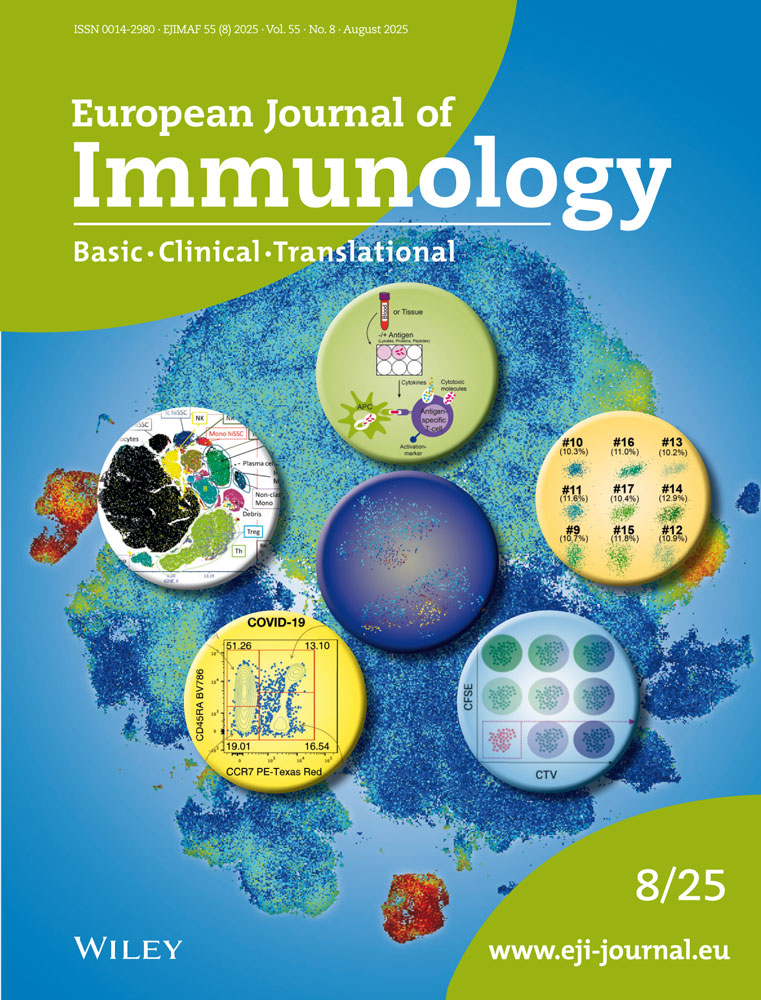Inability of autoimmune mice with the lpr gene to spontaneously produce interleukin 3
Abstract
A recent report (Palacios, R., Eur. J. Immunol. 1984. 14: 599) indicates that spleen cells from MRL-MpJ-lpr/lpr mice spontaneously produce interleukin 3 (IL3) and suggests that this lymphokine could be responsible for promoting the lymphoid hyperplasia regulated by the lpr gene. The present study shows that splenocytes from several murine strains bearing the lpr gene do not spontaneously produce IL3. This has been determined by measuring the amount of this lymphokine by a bioassay and by the detection of IL 3 mRNA using Northern blot analysis. We suggest that another lympbokine is responsible for growth of lymphocytes regulated by the lpr gene.




